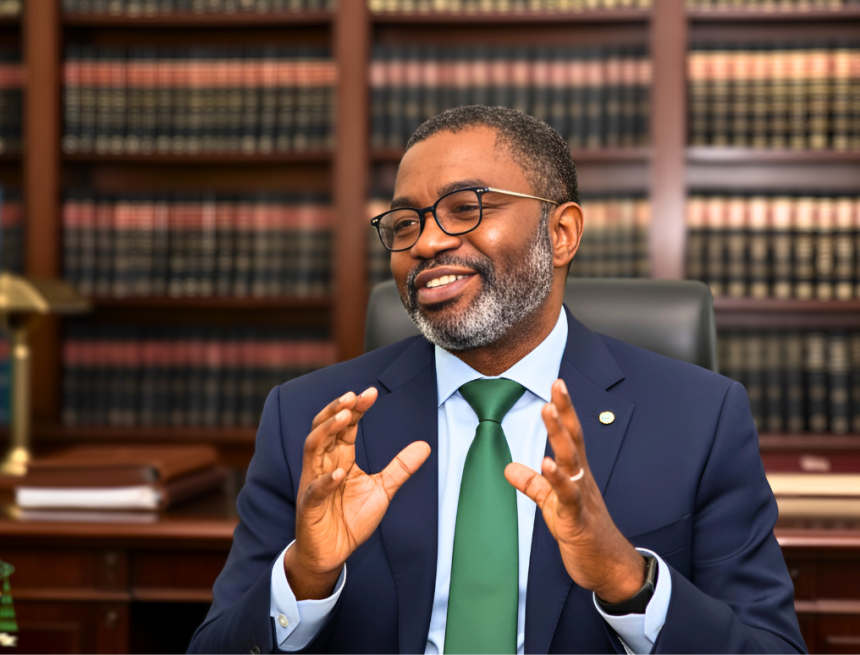By Brian Matambo
Senior Counsel John Sangwa has reignited debate over the independence of Zambia’s institutions, accusing the government of openly defying a binding Constitutional Court ruling in a manner that threatens the very fabric of constitutional democracy.
In a strongly worded statement issued on 17 September 2025, Sangwa disclosed that he had formally written to the Attorney General, Minister of Finance, Chief Justice, Speaker of the National Assembly, and the Emoluments Commission, raising the alarm over the government’s refusal to implement a judgment delivered more than two years ago.
The ruling of 31 July 2023 was emphatic: judges’ emoluments must be determined by the Emoluments Commission on the recommendation of the Judicial Service Commission, and the Ministry of Finance must provide six-monthly reports to Parliament on steps to actualise the Judiciary’s financial independence. Yet no such reports have been submitted, and no legislative amendments have been made.
Instead, on 15 May 2025, President Hakainde Hichilema issued new regulations unilaterally increasing judges’ salaries under provisions already struck down as unconstitutional. For Sangwa, the move was “unconstitutional, void, and in direct defiance of the Court’s binding Judgment.”
A BROADER PATTERN OF DEFIANCE
This latest dispute is not occurring in isolation. It comes against a backdrop of growing concern that the Executive has steadily eroded the autonomy of Zambia’s institutions since 2021.
Critics point to repeated instances where the police have been used to block opposition gatherings while permitting ruling party activities to go ahead. Civil society has accused the government of selective application of the law, with political opponents facing swift arrests while allies are shielded from accountability.
The Judiciary itself has not been spared from allegations of capture. Appointments to the bench have raised questions of loyalty over merit, while key rulings have been viewed as leaning consistently in favour of the Executive. Sangwa’s warning, therefore, lands in an environment where doubts about judicial independence are already widespread.
UNDERMINING THE CONSTITUTION
By issuing a statutory instrument in defiance of the Constitutional Court, the President has, according to Sangwa, placed himself above the Constitution he swore to defend. The very idea of separation of powers, he argues, is being undermined by acts of executive overreach.
Observers note that financial dependence has long been a tool through which governments have exerted quiet pressure over the Judiciary. By withholding resources or controlling salaries, the Executive can bend the will of the courts. The 2023 judgment sought to break this cycle by granting the Judiciary genuine financial independence. That it remains ignored speaks volumes about the reluctance of the current administration to cede control.
PRESSURE ON OTHER ACTORS
Sangwa’s letters also pile pressure on other constitutional players. He has called on the Attorney General to provide legal guidance that aligns with the Constitution rather than political convenience, on the Minister of Finance to immediately lay overdue reports before Parliament, and on the Speaker to exercise Parliament’s oversight role without fear or favour.
He further urged the Emoluments Commission to assert its constitutional mandate and for the Chief Justice, as head of the Judiciary, to engage the Executive and Parliament to safeguard judicial independence.
A TEST FOR DEMOCRACY
For many Zambians, the issue is becoming emblematic of a deeper struggle: whether the rule of law will prevail, or whether political expediency will continue to dictate the boundaries of governance.
The government’s handling of this matter will not only determine the fate of the Judiciary’s financial independence but also signal to the public whether the Executive respects the Constitution. In Sangwa’s words, “no office holder, not even the President, has the authority to place themselves above the Constitution.”
As the 2026 election approaches, the dispute underscores a broader question of trust: can the institutions meant to check the Executive stand their ground, or will they continue to bend under pressure?
For now, Sangwa has given notice that if the Executive persists in ignoring the Court, he will return to seek enforcement orders. The battle lines, once again, are drawn between the supremacy of the Constitution and the ambitions of those in power.
Subscribe to the Daily Newsletter that lands in your email at 07:00AM CAT with all the news you need to know about from this website and others – https://www.zambiavotes.com/newsletter/



Leave a Reply